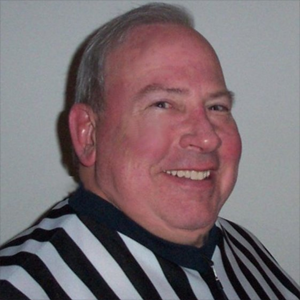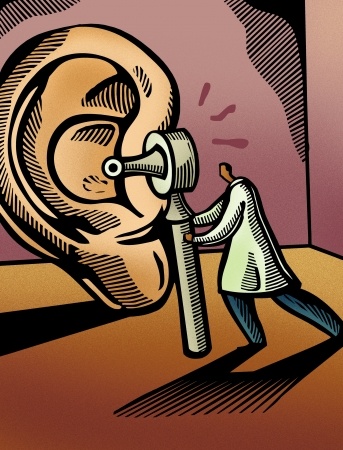
Rndballref
20 Years Experience
Chicago, IL
Male, 60
For twenty years I officiated high school, AAU and park district basketball games, retiring recently. For a few officiating is the focus of their occupation, while for most working as an umpire or basketball referee is an avocation. I started ref'ing to earn beer money during college, but it became a great way to stay connected to the best sports game in the universe. As a spinoff, I wrote a sports-thriller novel loosely based on my referee experiences titled, Advantage Disadvantage
When you catch a ball in the air you are considered to be in the court where you jumped from. So you might think that this play is a violation, but there are two exceptions ... 1) by a defensive player intercepting the ball, and 2) by either team on a throw in.
see the answer below. In summary, Home Management can eject anybody. Usually the AD works closely with the coach so in practical terms, the answer is yes.
Team possession ends when the shot goes up. If the ball touches an offensive player's hand, but he does not direct or control the ball, team possession has not been re-established and therefore no backcourt violation.
In NFHS rules you NEVER award free throws for a player control foul UNLESS the foul is also flagrant (which I have never seen). It doesn't matter if the team is in the bonus.
As far as over the back, you should know that there is no foul defined in the rule book for over the back. Illegal contact (pushing someone from behind, for example) is either a common foul, a team or player control foul, foul in the act of shooting, technical, intentional or flagrant. If the ball is loose (also not defined in the NFHS rule book) - I think you mean no team control - then illegal contact is a common foul and free throws will be shot if in the bonus.
Emergency Room Manager
 What is the most bizarre thing you've seen in your ER?
What is the most bizarre thing you've seen in your ER?
Antiques Dealer
 If you buy an item that turns out to be stolen, do you have to turn it over to the police?
If you buy an item that turns out to be stolen, do you have to turn it over to the police?
Audiologist
 Are earbuds dangerous for my ears?
Are earbuds dangerous for my ears?
In high school I went to Wilt Chamberlin's basketball camp. He was 7'1". In games I have officiated, the tallest player was about 6'10".
In a two man crew there are occasions when the trail official should call three seconds. Imagine the ball in the corner near the sideline and endline (baseline), on the lead official's side of the court (the lead is the ref on the endline). The lead should drift toward the sideline with the body angled away from the basket. That leaves the trail official responsibility to look into the paint, and possibly call 3 seconds. By the way, I rarely called 3 seconds in Varsity games - because I think it is the perfect advantage/disadvantage call. That is even though someone is camped out for 3+ seconds, I would only interrupt the game for 3 seconds if that player received the ball or captured the rebound.
I am not sure what you mean by trap. Are you saying the defender steps closer and prevents the dribbler from moving because of the outstreched arm of the dribbler? Then yes, the defender can move as long as he is entitled to the spot on the floor. But if you are saying the defender somehow holds the arm of the dribbler it is a common foul. If I have missed the point of your question rephrase it and I will try again.
-OR-
 Login with Facebook
Login with Facebook (max 20 characters - letters, numbers, and underscores only. Note that your username is private, and you have the option to choose an alias when asking questions or hosting a Q&A.)
(A valid e-mail address is required. Your e-mail will not be shared with anyone.)
(min 5 characters)
By checking this box, you acknowledge that you have read and agree to Jobstr.com’s Terms and Privacy Policy.
-OR-
 Register with Facebook
Register with Facebook(Don't worry: you'll be able to choose an alias when asking questions or hosting a Q&A.)